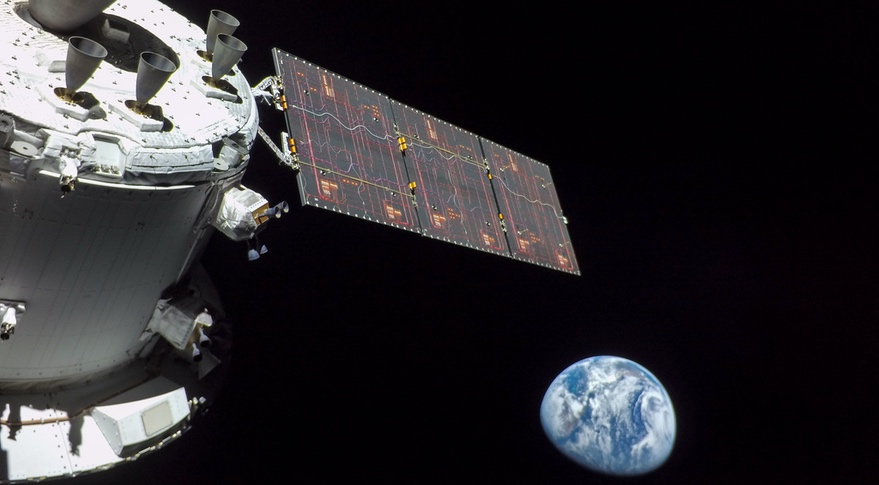


The next and most profound industrial revolution in human history is underway in Low Earth Orbit
NOFORN
On National Security | It’s no secret: Keeping space allies in the dark hurts the U.S. - SpaceNews

Secrecy is innate to military space, and it’s been that way since the start. But officials are increasingly expressing frustration with a classification system that at times appears to be doing more harm than good.
The culture of secrecy emerged in the opening decades of the space age when only two superpowers owned the domain. Space has since gone global, with 90 countries belonging to the once highly exclusive club, including many U.S. allies.
Today’s U.S. military space leaders frequently trumpet the importance of international partnerships. They point out that the security challenges in outer space are global and the United States can’t do it all. The Space Force, for example, talks about creating hybrid networks — and has advocated for joint programs with other nations.
But the rhetoric rings hollow if information cannot be shared, said Maj. Gen. Doug Schiess, who runs U.S. Space Command’s Combined Force Space Component Command.
Schiess’ organization, responsible for monitoring and analyzing objects and activities in orbit, brings in officers from allied countries to work side-by-side with U.S. space operators. He said it is becoming more difficult to share information, even with close partners, because documents routinely are labeled NOFORN, meaning they cannot be shared with foreign nationals.
“All too often we slap a ‘NOFORN’ control on a sensitive document,” Schiess said at a recent industry conference.
“There are times, of course, when the NOFORN label is required, but lately it’s become too universal,” he said. “If we’re going to be truly integrated by design, we need to ensure our allies and our partners have access to the information they need to accomplish the mission,” he added. “I can assure you our senior leaders are paying attention to this.”
Facilitating work with allies also is a priority of Air Force Secretary Frank Kendall who recently sent new guidance to Department of the Air Force employees on the use of the NOFORN label. He is asking managers to be more selective in what gets billed as “no foreign” and make sure it doesn’t unnecessarily undermine efforts to work more closely with allies.
Kendall’s guidance is reflected in a recent memo that assistant secretary of the Air Force for space acquisitions Frank Calvelli sent to procurement agencies. One of the directives in the memo is to “avoid SAPs and over-classifying.”
SAP, or Special Access Programs, is a specific category that imposes much tighter access restrictions than normally required for information at the same classification level.
Putting programs in the SAP category “hinders our ability to integrate space capabilities across other domains … and can hinder getting ideas from a broader pool of industry, and future sharing with allies,” Calvelli wrote. “Protect capabilities, if necessary, through normal security classification guidelines such as SECRET and TOP SECRET but avoid creating stovepipes with SAPs.”
Space Force officials also have suggested that talking more openly about U.S. military capabilities would make enemies think twice before attacking the United States. “If you have everything classified, that really erodes your ability to deter conflict. You have to be able to talk about your capabilities,” Gen. John “Jay” Raymond, the first chief of the Space Force, said last year.
This mindset appears to have influenced Kendall’s decision to reveal the Air Force’s B-21 stealth bomber at a Dec. 2 event at Northrop Grumman’s facilities in Palmdale, California. The Air Force to date has only shown renderings.
Charles Beames, a space industry executive who once worked on classified space programs at the Pentagon, has been a longtime critic of overclassification.
“People are rewarded for saying declassification is a good thing, but they’re not rewarded for actually doing it,” said Beames.
The defense secretary, the director of national intelligence and others in the executive branch of the U.S. government have the authority to declassify. “It isn’t hard to do at all. It can be done in a memo,” Beames said. “But there’s no reward for them to do it. It takes a lot of courage and people can risk their careers.”
Of course, there are always things that should be kept secret, but the space business takes it to the extreme compared to other sectors of the military, he said. “It’s a weird cultural thing.”
Sandra Erwin covers military space for SpaceNews. She is a veteran national security journalist and former editor of National Defense magazine.
“On National Security” appears in every issue of SpaceNews magazine. This column ran in the November 2022 issue.
-
 Launch Military
Launch MilitarySpace Force to recompete contract for integration of rideshare payloads
The Space Force is researching industry interest in the follow-on to the $94 million Launch Manifest Systems Integration contract that Parsons Corp. won in 2019
-
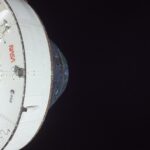
Civil Policy & Politics Artemis 1 launch boosts ESA’s exploration ambitions
spacenews.comSpaceX to launch last new cargo Dragon spacecraft - SpaceNews
Jeff Foust4 - 5 minutes
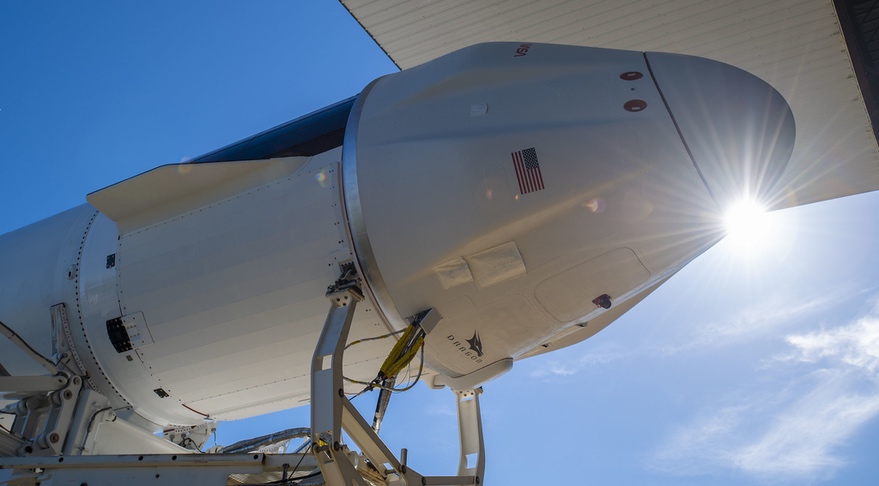
A SpaceX cargo Dragon mission being prepared for launch on the CRS-25 mission earlier in the year. The upcoming CRS-26 launch will be the first flight of the third and final cargo Dragon spacecraft the company expects to build. Credit: SpaceX WASHINGTON — A SpaceX Dragon launching soon to the International Space Station is the last cargo version of the spacecraft the company expects to build, with one more crewed spacecraft under construction.
At an Nov. 18 briefing about the upcoming SpaceX CRS-26 cargo mission to the station, NASA and SpaceX announced the launch, previously scheduled for Nov. 21 from the Kennedy Space Center, had slipped a day to Nov. 22 at 3:54 p.m. Eastern. A launch that day would allow the Dragon to dock with the station Nov. 23 at 5:57 a.m. Eastern. . . READ MORE
spacenews.comAzure Orbital Space unveils software tools for space applications - SpaceNews
Debra Werner3 minutes

Xplore is the latest addition to the Azure Orbital Ecosystem. The a Seattle-area startup is preparing to launch an Earth-observation satellite to gather hyperspectral data and high-resolution video imagery. Credit: Xplore SAN FRANCISCO – Microsoft announced the private preview Nov. 17 of a new product, the Azure Orbital Space Software Development Kit (SDK).
With the spacecraft-agnostic SDK, Azure Orbital intends to make it easy for developers to create space-related applications in the cloud and deploy them on spacecraft operated by Azure Orbital partners, Stephen Kitay, Azure Space senior director, told SpaceNews.
“Microsoft has a vision to lower the barrier of entry for space developers and to reduce the need for custom solutions,” Kitay said.
Space applications development is a highly specialized field. A lack of standards makes it time-consuming and difficult to write applications and reuse code across satellites and missions, Kitay said.
On-orbit computers are become increasingly capable. Still, demands for rapid data processing are surging as Earth observation, communications and space domain awareness missions turn to artificial intelligence and machine learning to speed up operations and increase spacecraft autonomy.
Instead of launching its own satellites, Azure Orbital created an intelligent hosting platform, software, that runs on spacecraft operated by its partners Ball Aerospace, Loft Orbital, Thales Alenia Space and Xplore.
The hosting platform is designed to help applications communicate with spacecraft hardware in a secure way, meaning developers can test code in space. . . READ MORE



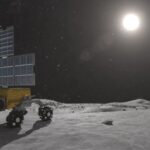
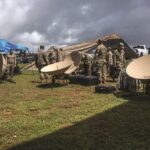



No comments:
Post a Comment